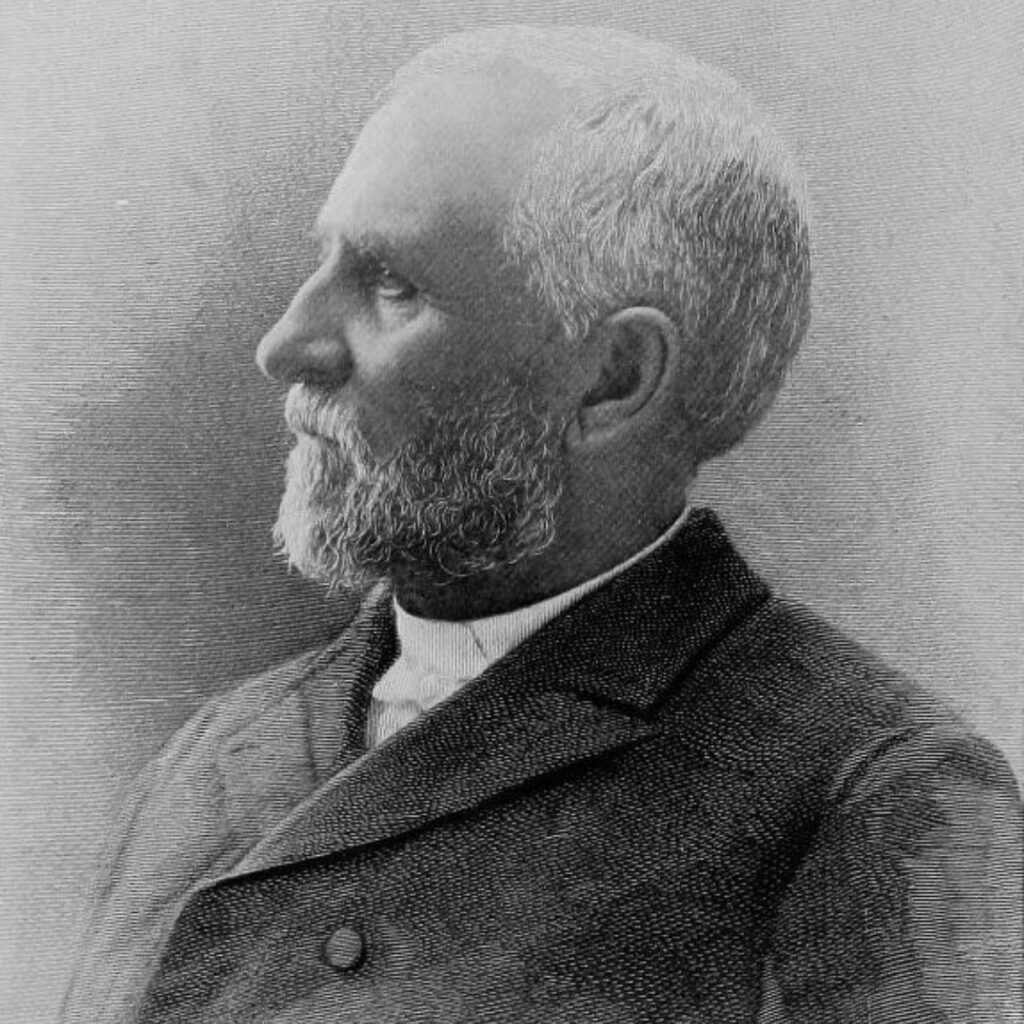John Livingston Nevius (1829-1893) was an American Presbyterian missionary to China during the nineteenth century.
The story of how he became a missionary and his subsequent cross-cultural service in China together with his wife is fascinating. But they are not the reason that he remains such a strategic cross-cultural missionary figure. His deepest value lies in his mission thinking and policies, which can be said to be well ahead of his time. Recently, I wrote about Roland Allen (1868-1947). Allen used Nevius’ writings as a resource for his own missions thinking. “Roland Allen… came to similar conclusions regarding the importance of Nevius’ methods.”
Calling and missionary career
Nevius was born in Seneca County, New York on March 4, 1829, into a Christian family of Dutch descent. Nevius had little interest in spiritual things until he was twenty years old. “Then, in October of 1849, while Nevius was a teacher in Georgia, God answered his mother’s prayers as he surrendered to serve the Lord in ministry. He attended Princeton Theological Seminary from 1850-1853.” Dr Charles Hodge, along with many other missionary speakers, had a profound and lasting influence on Nevius. In January 1851, he wrote in his journal, “I have now an object in life, the glory of God and the salvation of my soul and the souls of others.”
Nevius wrestled with where he should serve in ministry. In correspondence with Helen, his wife-to-be, he pondered: “Where can we do the most for our Saviour, and where would He have us go?” The Lord leads them to China, Japan, and Korea for a forty-year missionary career.
Arriving in China in 1854, John and Helen were soon travelling and preaching, setting up mission work and schools, studying and writing. In 1861 the couple moved to Shandong province in North China, where most of their missionary work was undertaken. John trained missionaries while Helen set up a boarding school for girls. “Nevius continued with his missionary work to country areas until 1887, travelling thousands of miles, often under arduous conditions of terrain, and weather. He died suddenly, at home, in October 1893 and was buried in the cemetery at Chefoo.”
Nevius’ Radical Missionary Policies.
Distinguished though his missionary career was, that is not the reason that “surveys of the greatest Chinese missionaries include Nevius.” He is remembered because of “the impact of his methods on contemporary mission strategies.” Nevius spent years arguing against the use of foreign funds by traditional missionaries to pay local Chinese workers to preach the Gospel and to pastor churches. “Nevius proposed alternative methods rooted in Scripture that proved successful in his mission field of Shantung. He developed what is called the “Nevius plan”. Nevius argued against the “old method” which “strives by the use of foreign funds to foster and stimulate the growth of native churches. The old method makes use of “paid colporteurs, Bible agents, evangelists, or heads of station.” Nevius proposed the “new method” which “proceeds on the assumption that the persons employed in these various capacities would be more useful in the end by being left in their original homes and employments.” The common goal of both systems was “ultimately the establishment of independent, self-reliant, and aggressive native churches. The point of contention was the use of foreign funds in reaching this common goal.”
Nevius was actually teaching three-self theology – that the local church should be free of dependence on missionary finances and leadership and be genuinely three-self: self-governing, self-supporting, and self-propagating. He felt, as Roland Allen later did, that the old method led to ongoing control by the missionaries and not by the local indigenous leadership.
Nevius knew that if the gospel was to grow, “the extension of the Church must depend mainly on the godly lives and voluntary activities of its local members.” These two elements, the godly lives, and voluntary activities, are vital to understanding the Nevius plan. “Therefore, all members were encouraged to witness and not leave proclamation to a few individuals employed by the foreigners.”
Nevius’s own Presbyterian Mission incorporated a few of his proposed changes, “but the key element that called for the use of unpaid Christians rather than salaried agents was too radical a change.” But in Korea, there was tremendous success. After meeting with Nevius, the Presbyterian missionaries in Korea were thoroughly persuaded. “So convinced were they that they adopted the Nevius plan practically in toto for themselves, and then, in order to indoctrinate members of the Mission who might arrive in later years, they passed a rule that every new missionary, upon arrival, should be handed a copy of Nevius’ book, and be required, at the end of his/her first year, along with their examination on the language, to show they also had come to understand the Nevius principles” (Clark).
Maybe Asian and Western churches should reprint the book and insist on it being widely read today!



